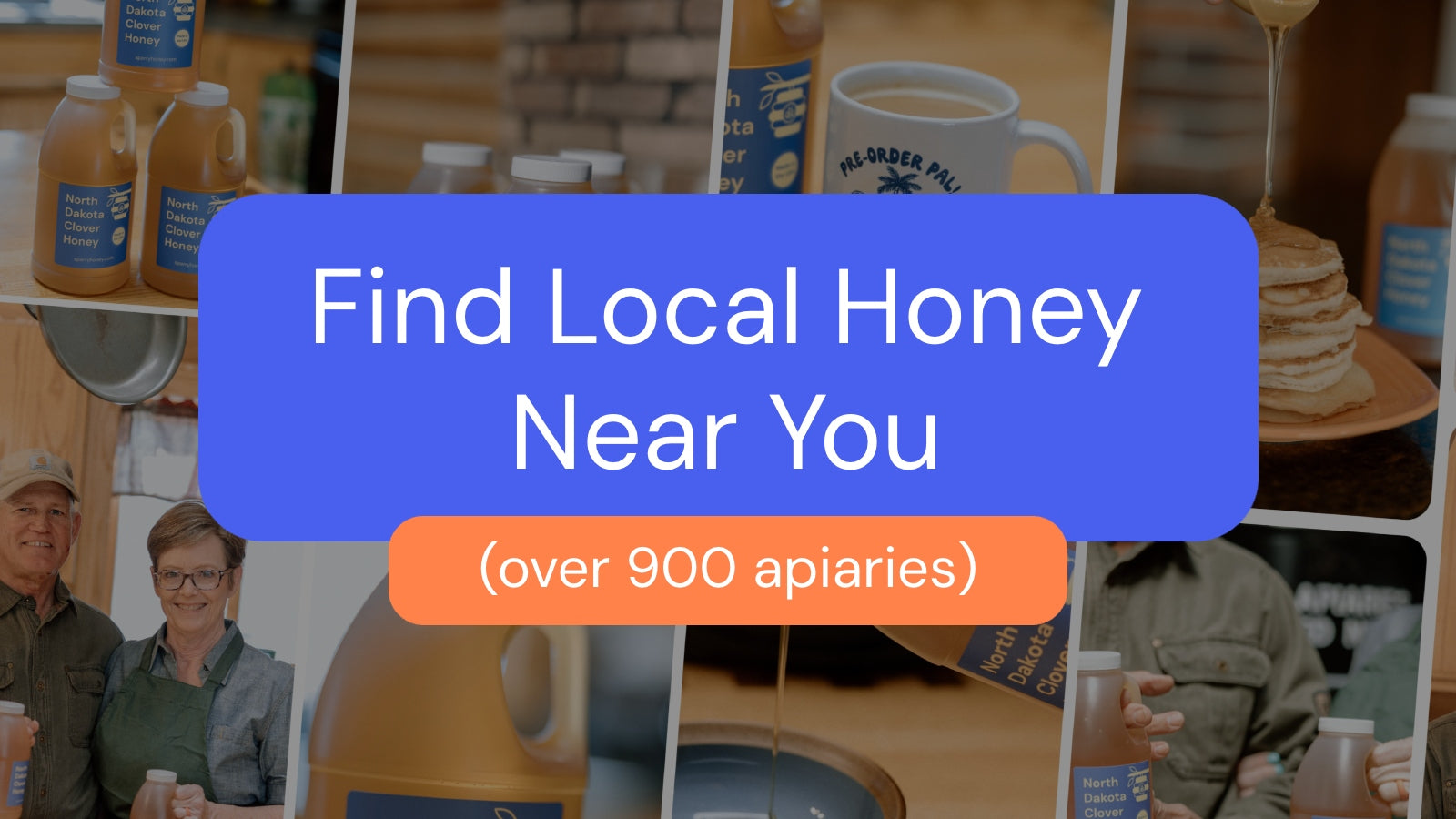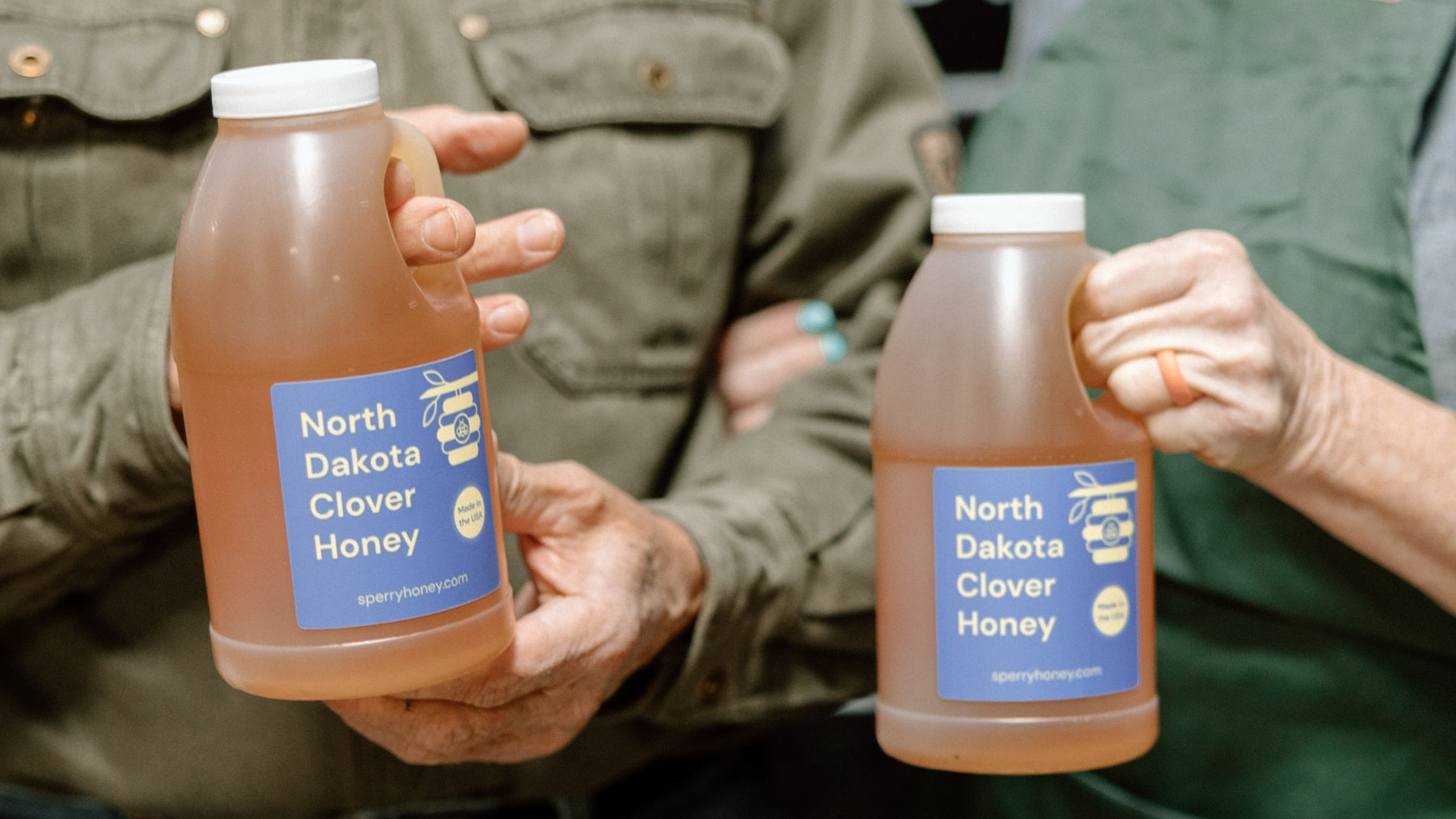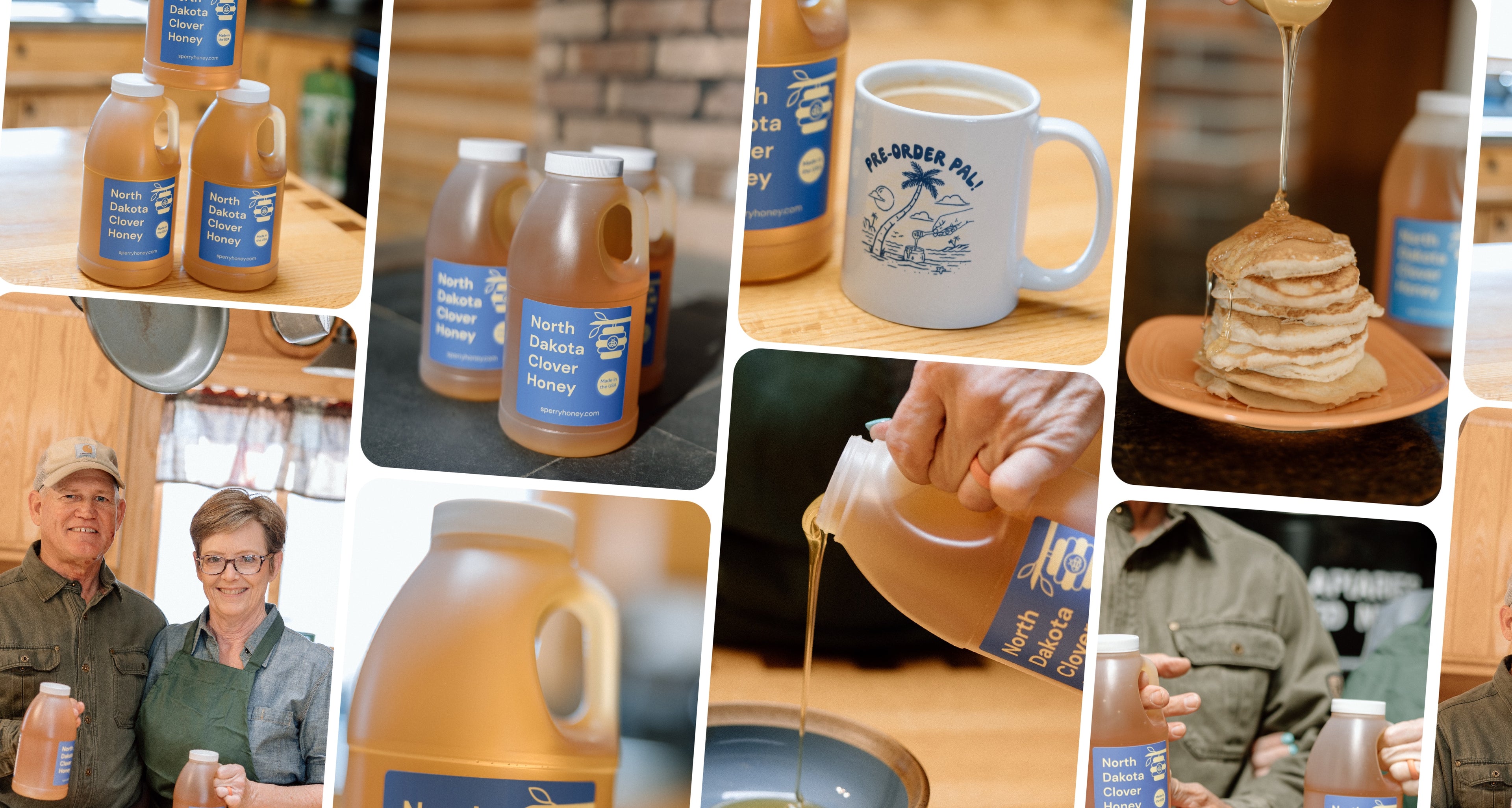
Is Honey Gluten-Free?
By Caleb Dueck (Director of Operations at Sperry Honey) | February 28, 2024
Yes, 100% pure honey is naturally gluten-free since bees make it using the nectar of flowers and not wheat or other grains that contain gluten. In most scenarios, buying from beekeepers in your area will help make sure your honey isn't cross-contaminated, and isn't filled with unwanted sweeteners or additives.
Gluten and Honey: The Dilemma
Although honey itself is gluten-free, you'll want to be aware of a few things so you determine if the honey you're eating is okay to eat.

Shared Facilities and Equipment
If the honey is processed or packaged in a facility that also processes foods containing wheat, barley, rye, or other gluten-containing grains, there's a risk of cross-contamination. This can occur if the same equipment, like bottling machines or storage containers, is used for both the honey and gluten-containing products without proper cleaning.

Artificial Sweeteners and Additives
The sweeteners and additives mixed into the honey might themselves contain gluten or be derived from gluten-containing grains. For example, some additives used for flavoring or thickening might be sourced from wheat or barley. If the additives aren't clearly labeled or identified as gluten-free, they could be a hidden source of gluten. While pure honey is technically gluten-free, the addition of other ingredients may not always be transparent or adequately detailed on the product's label. Imported honey found on grocery store shelves often contains sweeteners and unhealthy additives, even if they advertise themselves as 100% pure honey.
Gluten-free honey is likely in your neck of the woods.
If you want to play it as safe as possible, it's always good to only buy honey labeled as gluten-free. However, many beekeepers don't test their honey, even if their honey doesn't have any gluten, simply because testing is expensive. That said, one of the best ways to make sure your honey doesn't contain gluten is to buy it from local beekeepers. Here's why.

Transparency
When you buy local honey, you often have the opportunity to speak directly with the beekeeper or learn more about their production methods. This transparency allows you to ask questions about how the honey is harvested, processed, and whether there is any risk of cross-contamination with gluten-containing products.

Freshness and Purity
Local honey is typically less processed than mass-produced commercial honey. Unless the beekeeper's label says otherwise, it typically hasn't been blended or added to with sweeteners and additives that could contain gluten. The less the honey is processed, the lower the risk of cross-contamination. As we mentioned earlier, if the label on your store-bought honey says it's imported, that often means it contains additives (like corn syrup) and artificial sweeteners. Local beekeepers are often proud of producing pure, natural honey and strive to maintain its quality without unnecessary additives.

Dedicated Equipment and Facilities
Small-scale local beekeepers are less likely to use the same facilities and equipment for processing other food products, reducing the risk of cross-contamination with gluten-containing ingredients. Their operations are usually more specialized and focused on honey production exclusively.

Support for Local Economy
By purchasing local honey, not only are you more likely to get a gluten-free product, but you're also supporting local businesses and agriculture, which is awesome!
What About Wheat Fields?
The question is valid. "Couldn't bees pick up gluten from wheat fields while they roam?" While you can never say 100% this isn't possible, the odds of this happening are extremely low for a few reasons.

Bees Typically Avoid Wheat
Wheat is part of the grass family, making wheat flowers less attractive to bees. Typically, bees collect nectar and pollen from flowers that require or encourage insect pollination. As a result, bees are less likely to visit wheat fields compared to other flowering plants that are more appealing to them.

The Gluten is Encased
Wheat kernels are firm and are not easily broken apart in the field. This reduces the likelihood of gluten-containing dust becoming airborne and then sticking to bees. The gluten in wheat is encased within the grain, which means it would not typically be dispersed into the air or onto the surfaces from which bees would collect pollen or nectar.

Bees Don't Process Gluten
Even if bees were to come into incidental contact with wheat or gluten-containing dust, the process of honey production involves the transformation of nectar into honey through enzymatic activity and evaporation inside the beehive. This process does not involve the incorporation of external solid particles, like dust, into the honey. Therefore, even if bees were exposed to gluten-containing substances, it is unlikely that these would be transferred into the honey in significant amounts.

Different Schedules
The peak time for wheat harvest generally does not coincide with the peak activity periods for bees. Wheat is typically harvested in late summer or early autumn, a time when many flowers have already ceased blooming and bee foraging activity can be lower. Since bees are less active and there are fewer flowers requiring pollination, they are less likely to be flying around and thus less likely to come into contact with wheat dust.
Still Unsure?
If you're still nervous, you can always inquire with your local beekeeper about where their bees roam and whether or not there's a risk of gluten cross-contamination within their facilities.
Where to Find Local Honey
-

Our Local Honey Tool
Find Local HoneyTo find honey sellers in your area, make sure to check out our directory of over 900 beekeepers and apiaries. You'll start by selecting your state, and then use your zip code to find the beekeepers nearest to you. Each listing includes contact information so you can call ahead and confirm if a particular beekeeper has any risk of gluten cross-contamination.
-

Try Sperry Honey
Our Clover Honey ReviewsOf course, we're biased, but our honey is great too! Our clover honey is a great option if you want gluten-free honey shipped straight to your door (without having to talk to anyone 😊). We're an apiary located in rural North Dakota, and we've been selling honey to our neighbors since the 1960's. But don't take our word for it, see what our customers have to say!
Comment Below!
Have any questions? We'd love to hear them in the comments.

About Sperry Honey
Sperry Honey is a small farm located near Fargo, North Dakota. Owned and operated by Mark and Rebecca Sperry, we're a mom-and-pop small business who will 100% pure honey and premium beeswax.
Get 15% Off
Sign up below to save on your honey order. Unsubscribe anytime.


